Hospices face 'existential threat' amid budget fears
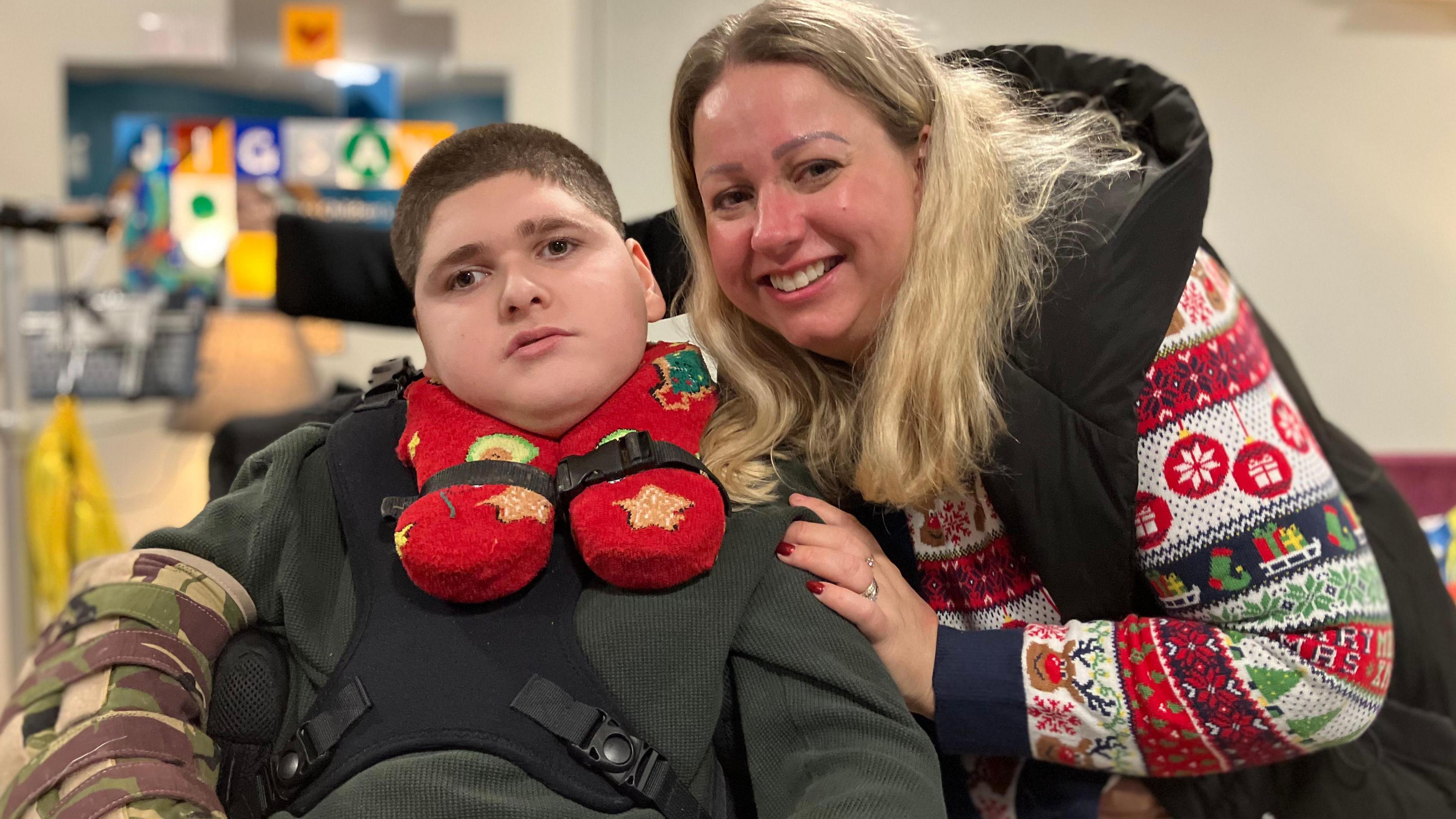
Jenny Anderson's son George has quadriplegic cerebral palsy and receives care from Jigsaw hospice in Carlisle
- Published
Hospices in the north of England face an “existential threat” due to a “funding crisis”, according to a hospice leader.
Paul Marriott, chair of Hospices North East and North Cumbria, said all of its members were running budget deficits.
He warned hospices may have to make staffing cuts without more funding.
The NHS said funding had increased by 3.4% this year, while the Department of Health and Social Care said central government had not made cuts to funding.
Hospices receive most of their funding from charitable donations, but get some some from the NHS too.
The average adult hospice receives about a third of its income from the NHS, according to charity Hospice UK.
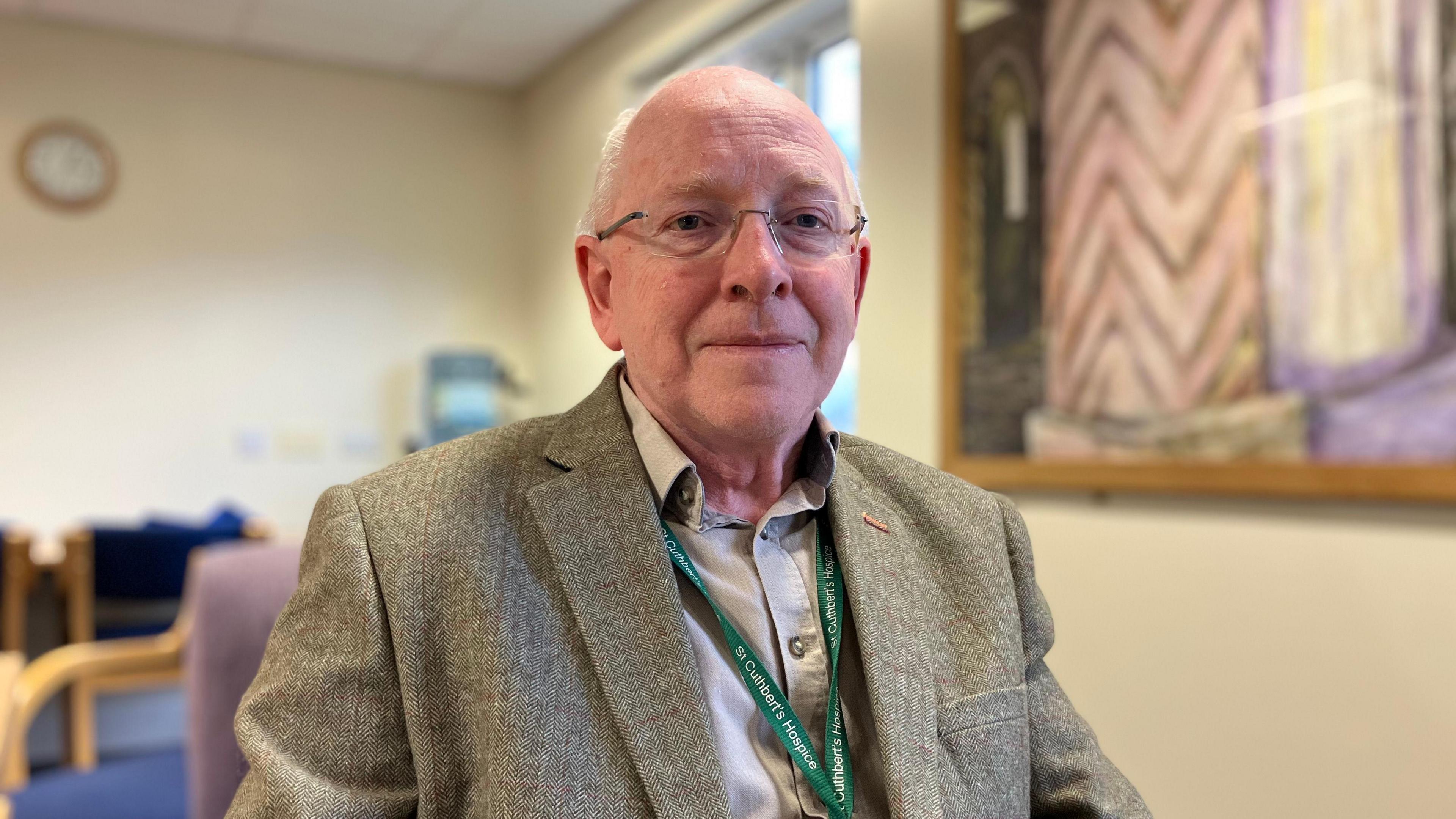
Paul Marriott said all members of the Hospices North East and North Cumbria group were running budget deficits
The NHS North East and North Cumbria Integrated Care Board (ICB) said it provided around £14.5m per year to the region's hospices.
But Mr Marriott said the funding uplift was below inflation.
He said: “I do think it is an existential threat. Every hospice is drawing on reserves currently and that’s not sustainable.”
Hospices could close or make serious staffing cuts next financial year without more funding, he added.
'So important'
Jenny Anderson's son, George, has quadriplegic cerebral palsy, and has been receiving care from Jigsaw hospice in Carlisle since he was six months old.
Jenny said the hospice was part of their lives.
"I rate it massively. I know George has such a good time here, he really does."
"It is so important to so many families," she added.
"I know a lot of families who come here and rely on it for their mental health and that they get that rest and they know their child is safe when they go somewhere. "
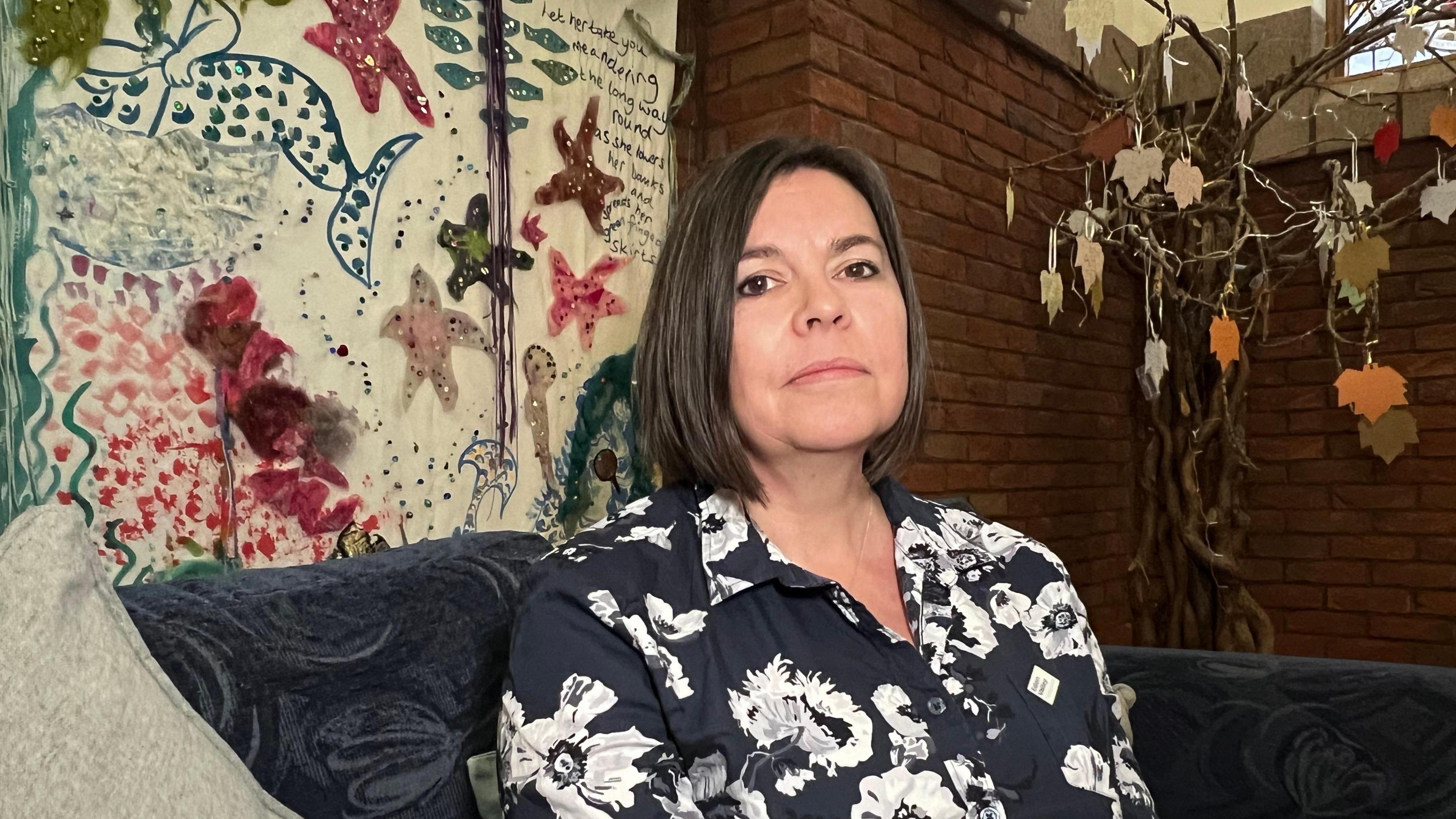
Julie Clayton said the hospice sector was "heading for a funding crisis"
Julie Clayton, who is chief executive of Eden Valley Hospice and Jigsaw, Cumbria's Children's Hospice, said they had seen their energy bills triple to hundreds of thousands of pounds and were in deficit.
Ms Clayton said the sector was "heading for a funding crisis".
"We will have to pull from our reserves. You can do that for a couple of years, but it very quickly becomes unsustainable," Ms Clayton said.
She added: "We'd like the government to have a conversation with us about how to sustain us into the future and acknowledge that big role that we're playing."
'Give something back'
Eden Valley gets around 80% of its funding from the local community.
Ruth Shield from Carlisle has helped raise thousands of pounds for the hospice, which cared for her son Ryan who died of cancer in 2021.
"We wanted to give something back," Ruth said.
She added: "I think it's incredibly important for hospices across the country to be able to get the funding that they need.
"Relying on donations from the community is great, but the government really should be able to provide more funding for them, because this is needed.
"The hospice is needed."
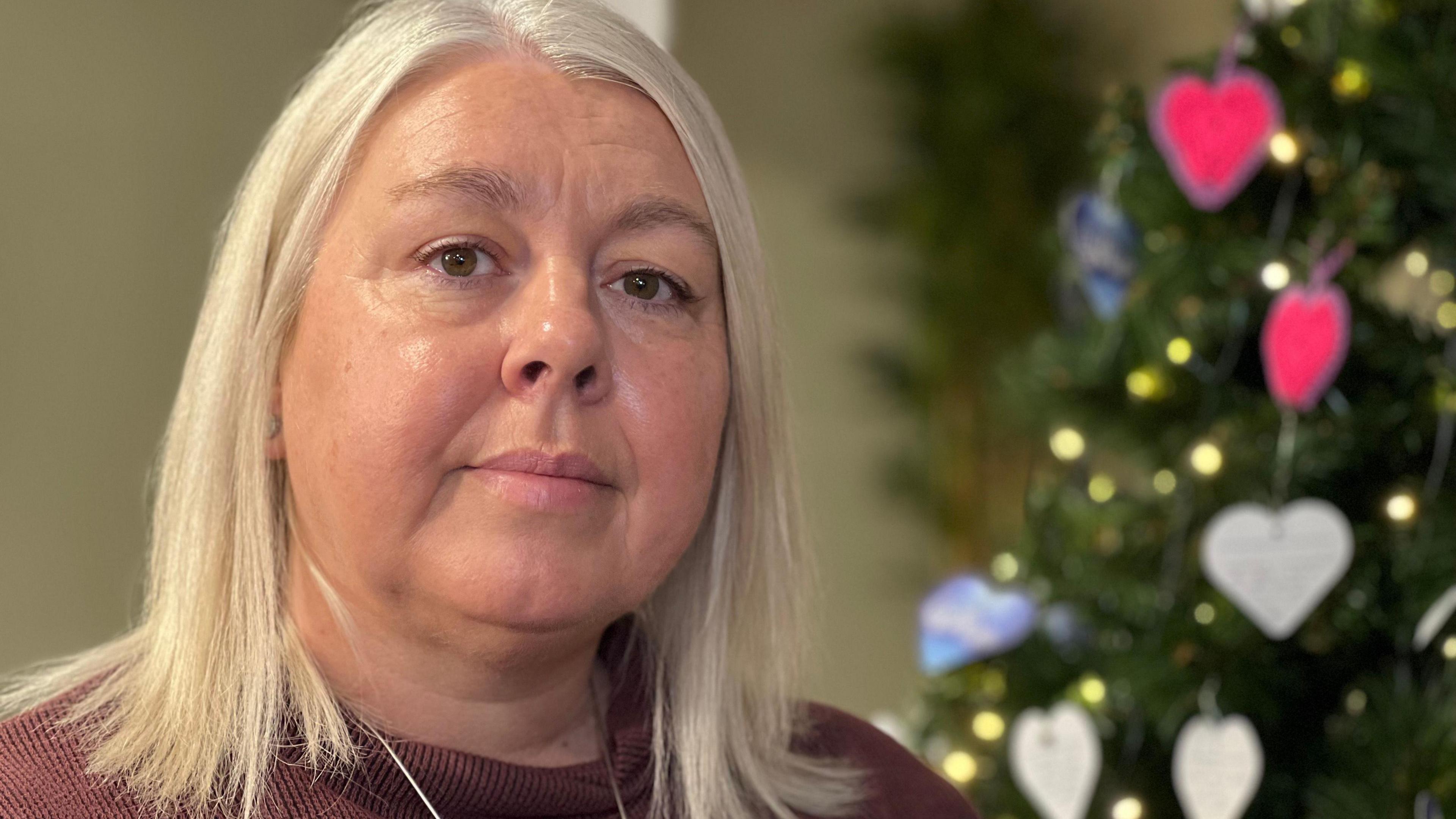
Ruth has raised thousands of pounds for Eden Valley Hospice, which cared for her son
A Department of Health and Social Care spokesperson said: “The level of hospice funding hasn’t been cut by central government, it is decided on an individual basis by integrated care boards depending on local agreements, and it varies across different areas.”
The North East and North Cumbria ICB said hospices played a "vital" role and their work was "hugely appreciated".
It said: "The ICB provides around £14.5m per year to the region's hospices, with funding increasing by 3.4% this year once two separate uplifts are taken into account... The NHS funds the capacity it requires through the current contracting and grant arrangements, but is not able to fund 100% of costs the charities have."
The ICB added it was working with hospices in the region on a new strategy to strengthen palliative end of life care.
- Published29 March 2023
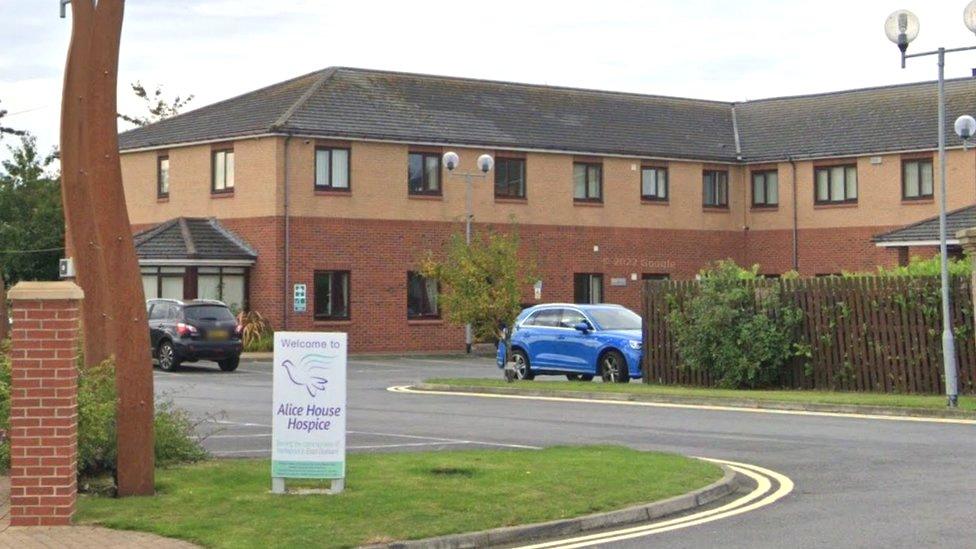
- Published11 May 2023
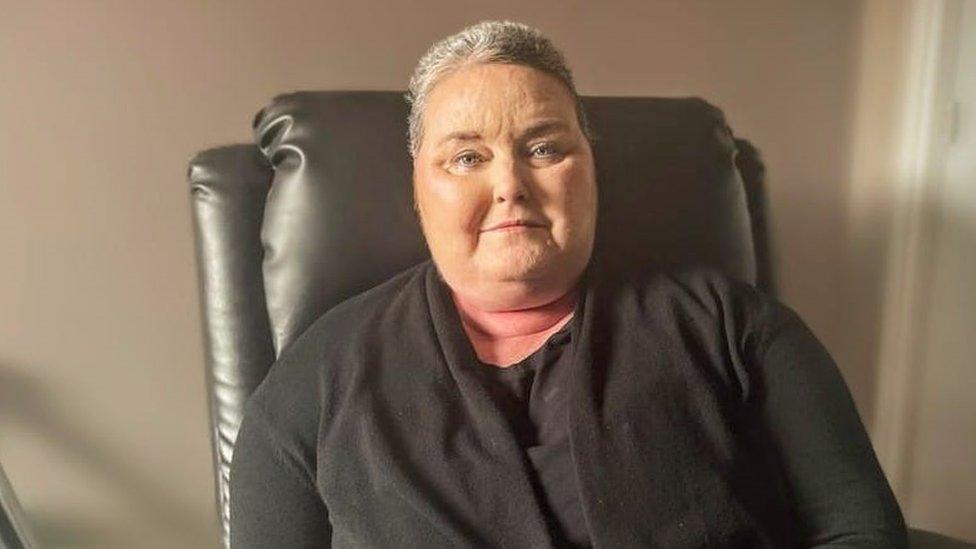
- Published11 October 2023
